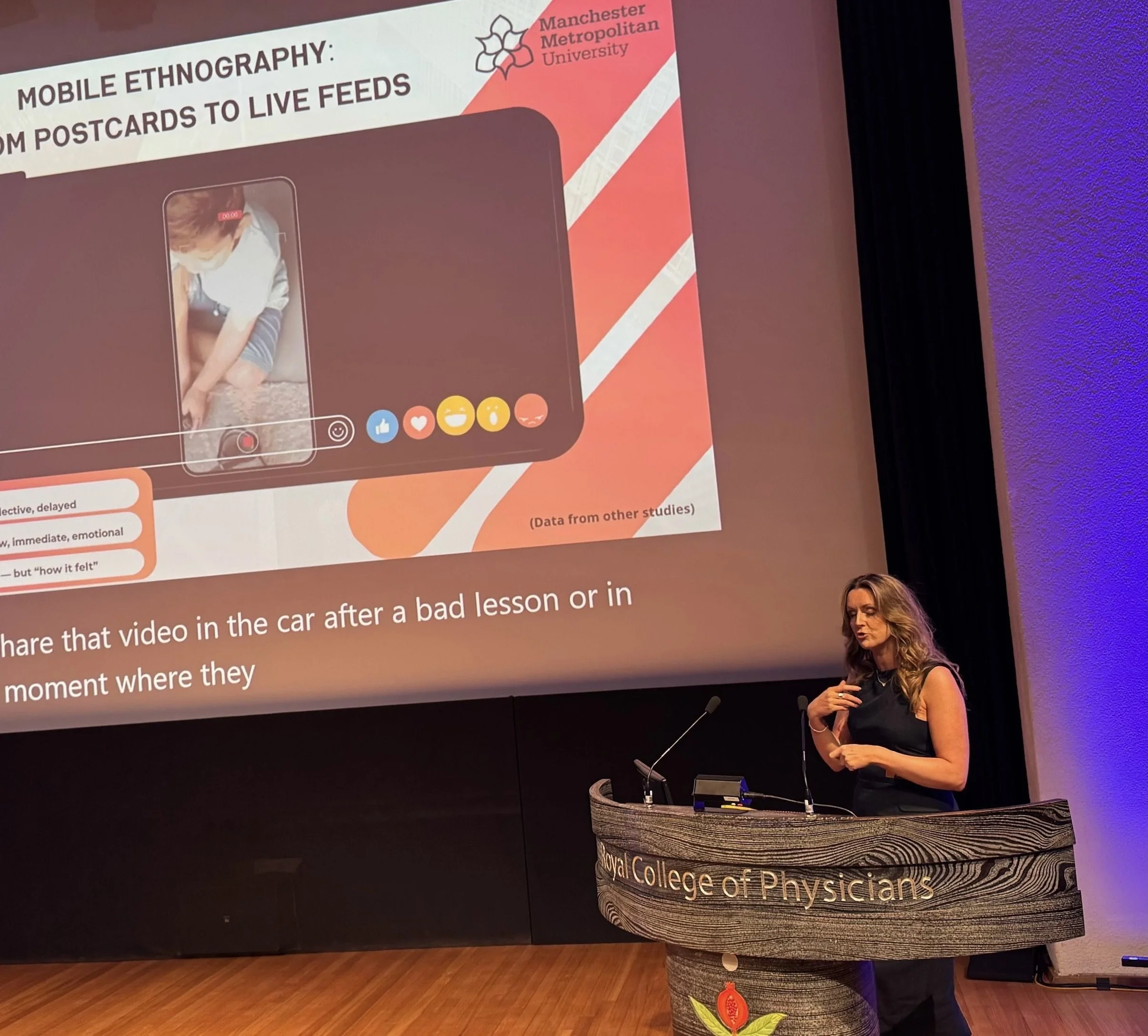The Future of Mobile Ethnography in Social Research: 4 Insights from SRA 2025
This year’s Social Research Association (SRA) Annual Conference was a celebration of the richness and diversity that defines our field. From long-term ethnographic studies to cutting-edge AI tools, it was clear that social research is not just evolving; it’s expanding in meaningful and multidimensional ways.
One theme that stood out in almost every conversation was how we’re still in the early stages of adopting AI and digital tools in social research. But there’s a growing openness, and even excitement, around what’s possible when we introduce new technologies into our qualitative research methods. Nowhere was this more obvious than in a brilliant presentation by Dr. Karen Tuzylak from Manchester Metropolitan University.
As I reflected on the day, what struck me most wasn’t just the innovation- it was how seamlessly the methods complemented one another. The beauty of our discipline lies in how we combine the traditional with the new. And one approach that really brought this to life was mobile ethnography in social research.
A Case Study in Innovation: Dr. Karen Tuzylak’s Research
Dr Tuzylak’s work, which focused on the lived experiences of trainee teachers, is a standout example of mobile ethnography being deployed in a social research context. Her use of Indeemo sparked thoughtful discussions and showcased how innovative mobile ethnography apps can deepen, not dilute, the quality of research.
Here are four key elements of her work that really resonated with me:
1. Capturing Real-Life Contexts Through Mobile Ethnography
Video is a powerful medium for human connection. Thanks to the ubiquity of smartphones and high-speed connectivity, researchers can now gain an authentic window into participants’ lives in real-time. Dr Tuzylak used mobile ethnography to uncover rich, contextual insights; capturing where her participants were, how they felt, and what shaped their experiences.
This method is at the heart of what makes mobile ethnography in social research so powerful: it bridges the gap between observation and experience.
2. Embracing an Always-On Ethnographic Approach
Rather than relying solely on scheduled sessions or retrospective interviews, Dr Tuzylak ’s study spanned seven months of continuous engagement. With Indeemo in their pockets, participants could capture key moments as they unfolded - whether reflecting after a tough day or celebrating small wins. This created a deeply human, real-world tapestry of experience.
3. Amplifying Research with AI
Dr Tuzylak also made history as the first PhD researcher to use Indeemo’s AI assistant for summarisation and video analysis. Instead of spending countless hours sifting through raw data, she was able to dive straight into the meaning behind the moments.
When paired with mobile ethnography, AI becomes an amplifier - streamlining the process and surfacing insights faster, without compromising quality.
4. Reimagining Research Storytelling
In an age where storytelling formats are changing, Dr Tuzylak showed what’s possible when we think beyond the written word. She combined video and augmented reality to present her research in ways that were both immersive and emotionally resonant. It raised an exciting question:
Could tomorrow’s PhDs be submitted as films, documentaries, or AR experiences instead of theses?
For anyone exploring mobile ethnography in social research, Dr Tuzylak’s storytelling approach opens up new, impactful ways to present key findings.
Why Mobile Ethnography is the Future of Social Research
Dr Karen Tuzylak at SRA 2025
What Dr Tuzylak’s work illustrates so well is that innovation in qualitative research doesn’t mean abandoning the past - it means building on it. Every method has its strengths, and our ability to mix approaches is what keeps research dynamic, rigorous, and relevant.
If you're thinking about how mobile ethnography in social research might fit into your practice, my advice is: start small. Stay curious. Let the process evolve. Tools like Indeemo are built to support your creativity and craft - not replace them.
Thank you again to Dr. Tuzylak for sharing her inspiring story, and to everyone at The SRA for hosting such an energising and forward-looking event.
If the above approach resonates with your own research objectives, please get in touch and we can set up a call with one of our Strategists to discuss your specific research requirements.

